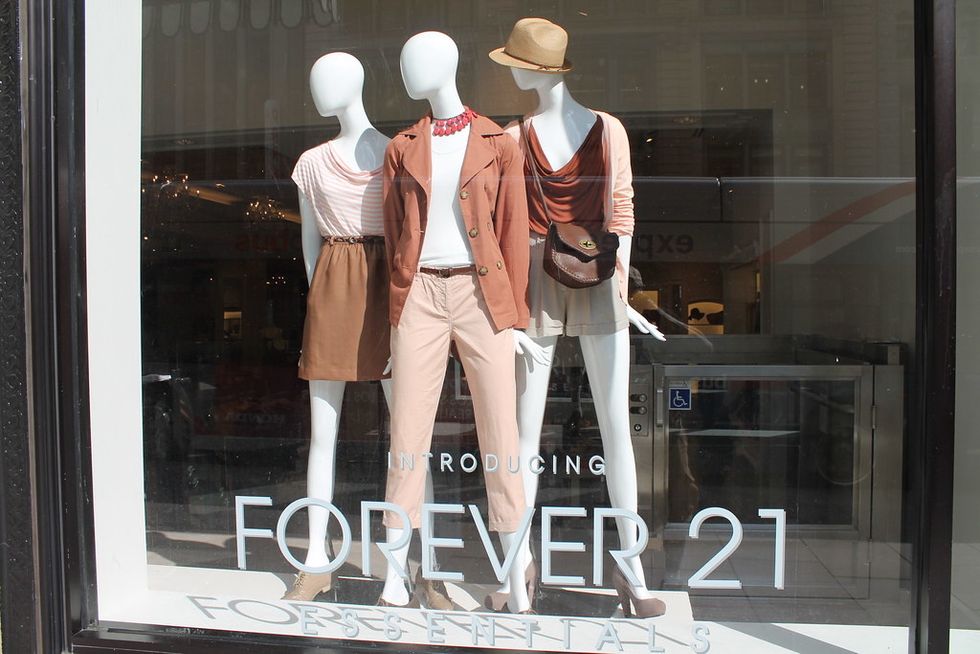Last week, clothing chain Forever21 faced backlash after customers began receiving something unexpected with their online orders - Atkins diet bars. Those who received the surprise took to social media to voice their concerns and outrage - especially when it seemed that these "low carb treats" were only being sent with plus-size orders (It did come out that the bars were sent with all orders, not just plus-size).
While Forever21 apologized, stating that they often send out third-party samples with orders, their response felt as cheap as their clothing - and as cheap as other brands' responses when called out on their well-disguised fatmisia.
In spite of the recent surge of body positivity movements, many brands continue to put plus-size customers on the back burner despite the large percentage of potential sales they represent.
Why is the clothing industry so afraid of fat women?
For decades, thin models ruled the fashion industry from the runway to the magazine covers. It has only been in the last decade that we've started to see more inclusivity in fashion, due in part to the body positivity movement.
But the runway still seems one-size-fits all - the fashion industry wants slim bodies because many designers believe their clothing will only look good on thin frames. But with the average size of women being a 14, why not cater to the masses?
Thinness isn't the problem and neither is fatness - our deep-seated ideas of what beauty is, however, is the problem.
Even when brands try to be more inclusive, they get shut down by people who want the status quo to remain at a size 00. Earlier this year when Nike put out plus-size models for their activewear Tanya Gold wrote a scathing article for the Telegraph about how the mannequin, who was modeled after the average woman, sold a "dangerous lie" and encouraged poor health and obesity.
However, even brands working to produce more size-inclusive clothing isn't enough. Often, clothing companies will simply enlarge a piece to fit - a little more fabric and suddenly you've got a size 16. This isn't how bodies work, though.
A T-shirt cut one way and simply enlarged will not be flattering on all body sizes. And designers often aren't truly looking to be inclusive - they know they need to check off some diversity boxes and cast a model with an hourglass figure to walk with one of their designs.
There are a handful of body-positive, size-inclusive brands out there, but their work is largely overshadowed by situations like Nike's plus-size mannequin or fashion designers fat-shaming women.
What will make brands start to listen?
The body-positive movement has been a great leap forward in terms of women's (and men's!) self-confidence and seems to have opened the door to a more size-inclusive fashion industry if only a tiny bit. In a world so divided, learning to love yourself and your body is a radical act of defiance.
It's important to stop supporting brands that don't want to be inclusive and instead use brands that celebrate every body and everybody. Big-name brands like Target and Old Navy bring in styles to fit many body shapes and online brands like eShakti and Swimsuits For All bring more inclusivity to our social media feeds.
Forever21's shipping faux pas serves as a reminder that many clothing brands remain ignorant to the struggles people face in accepting their bodies. We, as consumers, owe it to ourselves to call brands out for body shaming, whether intentional or not, and to use our spending power as a way to change the world.
Today, remember to love yourself and your body and know that no clothing brand will ever determine your worth.
- 8 Of The Best Online Stores To Buy Plus Size Clothing ›
- The Reason Why Everyone Needs To Stop Shopping At Forever21 ›



















